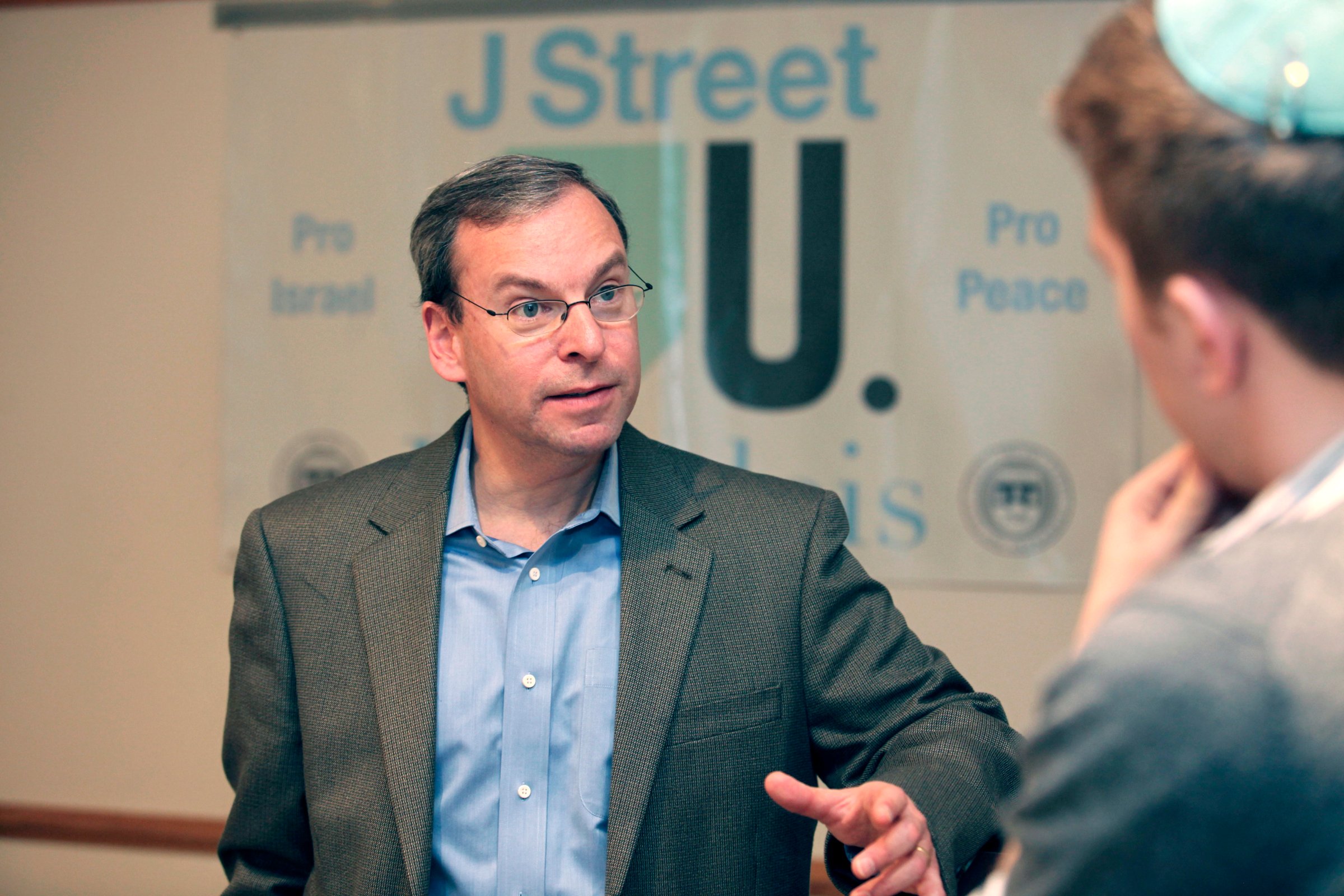
The leading Jewish umbrella organization in the United States voted Wednesday against admitting the liberal-leaning Israel advocacy group J Street, highlighting the often contentious rifts that exist within the American Jewish community.
The Conference of Presidents of Major Jewish Organizations, comprising 50 voting members of varying size, voted to deny J Street membership. Of the 42 groups represented at the vote, 17 supported J Street’s membership, 22 opposed and three abstained, the New York Times reports, citing people present because the actual count was private. J Street needed 34 votes to join.
The dovish group has ruffled feathers since its inception six years ago, when it sought to be an alternative to the American Israel Public Affairs Committee, the powerful pro-Israel lobby group that has dominated debate of Israeli issues in Washington. Billing itself as both pro-Israel and pro-peace, J Street has taken stances that are critical of Israeli government policy toward Palestinians and out of line with the typically lockstep stances of major American Jewish groups. J Street has, for example, backed the Obama Administration’s nuclear talks with Iran and opposed Israel’s 2008 military incursion into Gaza.
But the group has tapped into frustration with the existing pro-Israel political movement in the U.S., particularly among younger, more liberal Jews, claiming almost 60 university campus chapters. In a Pew poll last year, almost half of American Jews said they didn’t believe the Israeli government was making a sincere effort to bring about a peace settlement with the Palestinians
During Wednesday’s vote, J Street received the support of several mainstream Jewish groups, according to a statement from J Street, including representatives of the Reform and Conservative movements as well as the influential Anti-Defamation League. The vote was reportedly divided between the Orthodox groups and non-Orthodox members.
Rabbi Julie Schonfeld, executive vice president of the Conservative movement’s Rabbinical Assembly, told the Jewish newspaper The Forward that the groups backing J Street’s membership represented a larger number of Jews, meaning the group effectively “won the popular vote.”
Some of the groups that supported J Street’s membership have not been public about their decision, and others said they supported its membership even if they still disagree with some of its stances.
“A mistake was made today,” Schonfeld said. “It is of crucial importance to the future of the Jewish community that a full range of views is represented, and that we be part of a robust dialogue to achieve what we are all committed to, which is a safe, secure and thriving Israel.”
In its statement Wednesday, J Street said it was “disappointed” with the decision.
“In many ways the vote illustrates one of the key reasons that J Street was created in the first place and why we continue to grow,” J Street said. “A large segment of the American Jewish community feels that it does not have a home or a voice within its traditional structures.”
The Conference of Presidents released a statement Wednesday announcing that J Street did not receive enough votes and noting that some current member organizations were rejected when their were first up for a vote.
“The present membership of the Conference includes organizations which represent and articulate the views of broad segments of the American Jewish community and we are confident that the Conference will continue to present the consensus of the community on important national and international issues as it has for the last fifty years,” the Conference said.
More Must-Reads from TIME
- How Donald Trump Won
- The Best Inventions of 2024
- Why Sleep Is the Key to Living Longer
- Robert Zemeckis Just Wants to Move You
- How to Break 8 Toxic Communication Habits
- Nicola Coughlan Bet on Herself—And Won
- Why Vinegar Is So Good for You
- Meet TIME's Newest Class of Next Generation Leaders
Write to Noah Rayman at noah.rayman@time.com